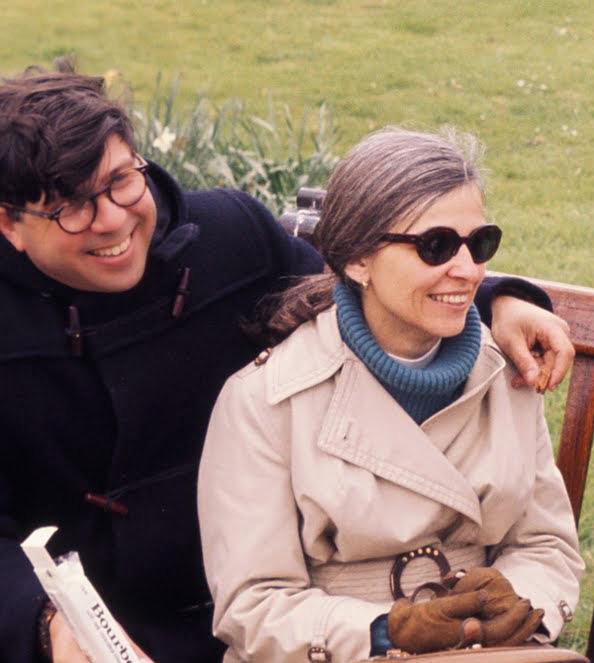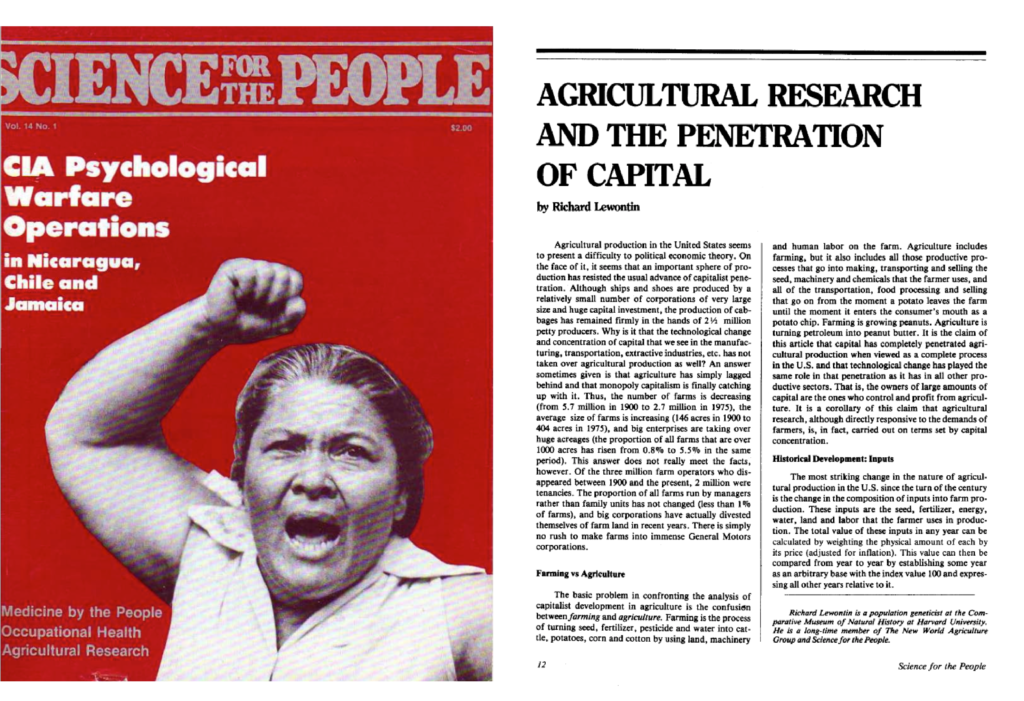July 21, 2021
Richard Lewontin (1929–2021): A Scientist for the People
Introduction to the Lewontin Memorial Collection
Richard Lewontin’s passing on July 4, 2021 brought sadness to many—those who knew him personally, as well as those who revered him as a stalwart embodiment of science for the people.
It is hard to adequately articulate the vast extent of Lewontin’s influence on the ideological foundations and praxis of radical science that we pursue today. Several obituaries have already been written from various perspectives—one a depoliticized human interest story from The New York Times, one a celebration of his scientific achievements in Nature, and a myriad of personal reflections from colleagues and close associates. Scarcely mentioned, however, is the fact that Lewontin was intimately involved in Science for the People (SftP) since the 1970s. A founding member of the Chicago chapter, he and other radical scientists engaged in teach-ins, anti-war protests, anti-racist agitations, and even what others considered subversion, by attempting scientific and political collaboration with the Democratic Republic of North Vietnam during the Vietnam War! Lewontin carried his radicalism to Harvard; in the Boston SftP chapter, he co-founded the Sociobiology Study Group, beginning a decade of fierce critique against genetic reductionism and its reactionary offshoot, biological determinism.

The man is nearer and dearer to SftP than realized by many among the new generation of members who never had the privilege of interacting with him. For those who did, Stuart Newman remembered their paths crossing in Chicago:
The next time I saw him . . . was five years later, during my first days as a graduate student in chemistry at his new academic home, the University of Chicago, where he was to remain until 1973. The re-encounter occurred at a public lecture that Dick presented on Darwinism, not as the true theory of biological change, but as a social product, an ideological manifestation of the rise of the Victorian bourgeoisie. This was part of his growing scrutiny of the assumptions of his science, a perspective that sharpened over the next decade into the concept of “biology as a social weapon.” He frequently revisited this formulation in essays and lectures, culminating in a magnum opus, The Dialectical Biologist (Harvard, 1985), written with his friend and colleague, the pathbreaking Marxist ecologist Richard Levins (1930-2016).
A day after Lewontin’s passing, Kevin Bird, a young SftP member of the revival generation, reflected on how Lewontin’s writing profoundly shaped his own science and activism:
Reading [The Dialectical Biologist] was a gestalt moment. Suddenly so many thoughts and half-formed ideas about how science is used to legitimize and support ideologies and how dominant social and political forces shape scientists, and science itself, clicked into place. He introduced and persuasively dismantled concepts like genetic determinism and reductionism and wrote about the flaws of capitalism and how modern research institutions were a product and willing participant in capitalism. . . . In fact, from Lewontin I learned that my passion for science and my drive for activism and social justice couldn’t just coexist, they could reinforce each other. When used properly, science could be an invaluable tool to advance social justice and progress. Equally important, science could be marshaled to defend against racism, sexism, and other bigotry.
Lewontin’s life and contributions mark the continuity and a renaissance not only of SftP but of radical science itself. In a time when the commodification of science is accelerating at an ever-increasing pace, when the scientific establishment unabashedly aligns itself with the neoliberal agenda without pretense, when harm brought on by the crises of capitalism worsens by the day, it is all the more urgent to remind ourselves that ‘another science is possible’ through the memory of Lewontin.

In this special issue, we will publish a series of articles discussing Lewontin’s influence on many corners of science and the left political sphere. In doing so, we hope to reacquaint ourselves with our past in order to continue the work of realizing a radically imagined future. Bertolt Bretcht put it nicely, speaking to our act of remembrance:
It takes a lot of things to change the world:
Anger and tenacity,
Science and indignation,
The quick initiative, the long reflection,
. . .
Only the lessons of reality can teach us to transform reality.
Rest in power, Richard Lewontin. May we continue the struggle he and many others have valiantly fought.
In solidarity,
The Editorial Collective





